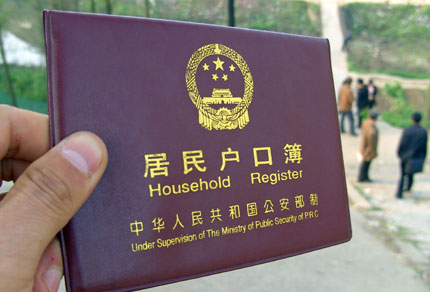
Local authorities in Taizhou, Jiangsu province have provided household registration permits to 20 disabled beggars, in an effort to secure their lawful rights. Experts and media outlets hailed the move as an affirmation of civil rights, arguing that the practice should be promoted nationwide.
The beggars, who suffer from both mental and physical disabilities, had been living at a local shelter for over three months. Due to their lack of household registration, their access to resources including medical assistance and basic living allowances was denied. The local government therefore decided to offer them household registration, the Xinhua News Agency reported.
“The local government’s actions set a good example for ongoing household registration reform around the country. Due to their disabilities, the beggars were unable to reach out to their families, nor - in some cases - to remember their true identities. By granting household registration permits to this long-neglected group, the local government implemented people-oriented social management,” Zhu Changjun, a Beijing-based media professional, told the Beijing Times.
In China, social benefits including medical insurance are distributed in accordance with one's employer and city of residence. Unregistered citizens are cut off from various social benefits including healthcare and education. China has been hard at work on the issue in recent times, providing household registration permits to nearly 14 million people over the past four years. However, beggars are often neglected, and no specific laws or regulations are in place to protect their legal rights.
According to documents released by the State Council in 2015, unregistered people are divided into eight categories, but beggars and the homeless are excluded entirely. The decisive action of the Taizhou authorities should therefore be encouraged and emulated, according to Zhu.
